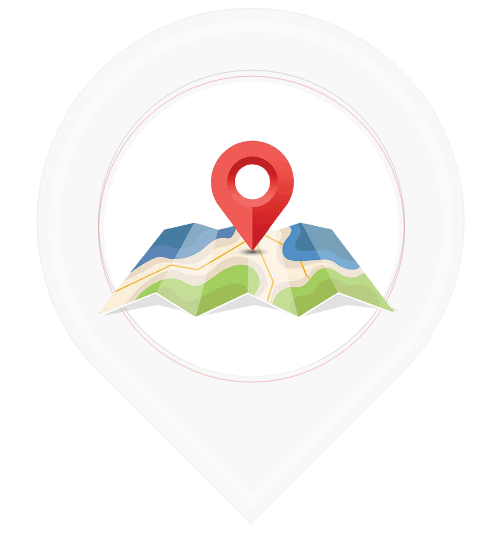
Enable Location
Article about Schools in Northern Cyprus
Article about Schools in Northern Cyprus
One of the biggest concerns of parents is the educational and schooling conditions where their children...
Article about Schools in Northern Cyprus:
One of the biggest concerns of parents is the educational and schooling conditions where their children are expected to spend many years to prepare for the future and become economically and socially productive. In this article, we have attempted to familiarize you with the schools and education system in Northern Cyprus.
The educational system of Northern Cyprus has made significant progress over the past few years, enabling graduates from this country to be accepted by some of the world's best universities and to attract high-quality job positions.
In general, schools in Northern Cyprus are divided into several categories: state schools based on the Istanbul Turkish language, exceptional state schools (gifted schools, English and Turkish language instruction), private schools (with a focus on English as the medium of instruction and also conversational Turkish), and international schools. It can be said that all three types of these schools benefit from a strong and modern educational system.

The educational system of this country is categorized as follows:
• Pre-school
• Elementary
• First Cycle of Secondary (First Three Years-Middle school)
• Second Cycle of Secondary (Second Three Years-High school)
The pre-school level is for children aged 4 to 6 and is provided by both public and private kindergartens. Families can choose to enroll their children in either public or private kindergartens. It should be noted that the pre-school level in Northern Cyprus is optional.
Students aged 7 to 12 must complete the elementary level, which consists of a six-year program. Elementary education is free and compulsory for students, but attending international schools incurs a fee.
Students between the ages of 12 to 17 must enroll in secondary schools. General secondary education is completed after six years.
In the first cycle of secondary education, general subjects are taught, while in the second cycle, specialized subjects are taught. In the first cycle of secondary education, students aged 12 to 14 study. This cycle is a prerequisite for the high school level.
The second cycle of secondary education (high school): This stage is designed for the age group of 15 to 18 and has a 3-year educational program. During this cycle, students, with the assistance of counselors, choose their preferred field of study.
According to the laws of the Ministry of Education and Culture of Cyprus, education until the end of the first cycle of secondary education is compulsory for all individuals. However, undoubtedly, continuing education until the end of high school is more beneficial for students, and after completing this cycle, they can proceed to higher education at universities. Some international schools in Northern Cyprus extend their secondary education to seven years. For this reason, students are better prepared for international examinations.

Public Schools in Northern Cyprus:
Public schools in Northern Cyprus do not have entrance exams and include classes from the first grade to the end of the twelfth grade. The class schedule is generally from 8 AM to 1 PM, and the main classes are conducted in Turkish (Istanbul dialect). However, at least 3 hours of classes per week will be held in English, and a third language, such as French or Russian, can be chosen by the student for instruction in schools.
Extracurricular activities usually take place three days a week and include programs such as computer studies, music, sports, and arts. The only fees payable in such schools are for uniforms, books, and stationery. Children can also make use of government bus services; school buses have designated stops in various areas.
Schools do not provide meals, but students can use the school cafeteria, which offers good and affordable services.
In these schools, an individual is appointed as the school leader who serves as the link between parents and the school, addressing issues and problems related to the students.
Vocational and Technical Schools (College of technology):
These include colleges where students interested in technical fields can receive education and training in professions and technical skills such as agriculture, nursing, tourism, hotel management, and similar areas. In the educational system of Northern Cyprus, the opportunity is provided for students to get acquainted with their chosen profession in a hands-on manner before beginning formal education in their desired field. They can do so by participating in work environments relevant to their chosen field, thus ensuring a closer and more tangible understanding before confidently selecting their desired course of study.
Admission to high schools in Cyprus is without entrance exams, and students in the ninth and twelfth grades participate in final joint examinations designed by the Ministry of Education at the end of the academic year.
Grading System in Northern Cyprus Schools:
Grades in Northern Cyprus elementary schools are given descriptively, indicating Very Good, Good, Acceptable, and Need for Improvement. In high schools, the grading system is based on a scale of 1 to 10, with a passing grade of 5.
Names of some public schools in different cities of Northern Cyprus are as follows:
- Canbulat Secondary School
- Alasya Primary School
- Karakol Primary School
- Nimik Kemal High School
- Bekirpasha High School
- Shehit Ikerkarter
- Marif (Public school with English instruction)
- Çanakkale Middle School

Trade Schools:
Students under the age of 17 can participate in vocational courses lasting 1 to 2 years, including apprenticeships. Skill-based fields such as photography, graphics, plumbing, electrical work, etc., are offered in these schools. Please note that the qualifications from these schools are generally applicable to trades and may not be widely accepted by reputable universities for admission.
Private Schools:
In private schools in Northern Cyprus, students are charged annual fees, which can vary depending on the student's age and the type of school. Additional costs such as uniform fees, transportation services, and separate book expenses are calculated. The primary language of instruction in private schools in Cyprus is English, and they also offer instruction in spoken Turkish. By studying in these schools, students can also receive a complete education in the Turkish language. Another advantage of private schools over public schools is that students in private schools will receive two diplomas, one in Turkish and the other in English.
Private schools in Cyprus are under the full supervision of the Ministry of Education and must adhere to all principles related to the core curriculum, assessment, disciplinary matters, teacher standards, and teaching methods.
The break hours in private schools are usually from 3:30 PM to 4:30 PM. In addition to the activities of public schools, private schools also offer extracurricular classes such as robotics, chess, sports, dance, music, and more to encourage students to enhance various skills.
Two breakfasts, lunch, and morning and afternoon snacks including fruits, cakes, and fruit juice are provided for students.
International Schools in Northern Cyprus:
International schools in Northern Cyprus provide a suitable environment for foreign students and immigrants; sometimes even native Cypriots also study in these schools. However, these schools are primarily designed for international students.
Since immigrant families also need to educate their children and some other families seek to have their children migrate before university age, these international schools can take responsibility for their education. This is because, for individuals under 18 years of age, parental accompaniment is necessary for migration.
International schools in Northern Cyprus encompass institutions with American and English systems, offered as both day schools and boarding schools. In day schools, one of the parents can reside in Cyprus permanently with their children, while in boarding schools, there is no requirement for a parent's permanent residence in Cyprus during the children's study period.

List of International Schools in Northern Cyprus:
- Future American Primary School (Nicosia District)
- Girne American Primary School (Kyrenia District)
- Logos School of English Education
- Lighthouse School
- Heritage Private School
- Silverline Private School
- IMS Private School
- Foley's School
- American Academy School
- PASCAL English School Lemesos
The cost of international schools in Cyprus, both day and boarding, is very reasonable compared to other countries. The option for installment payments of tuition fees is also available. However, the cost of education in these types of schools is slightly higher compared to regular schools. International schools in Cyprus have a very high quality of education, and students can quickly become proficient in multiple languages including English, Turkish, French, and more.
These schools often provide internationally recognized qualifications, and in some of the Cyprus schools, teaching standards are similar to European countries. Therefore, the possibility of transferring credits and transitioning to other countries is available. In boarding schools, students' safety is ensured through 24-hour supervision. These schools offer complete meal plans for students; transportation to the school, organizing recreational trips, high-speed internet, medical insurance, libraries, covered swimming pools, theater halls, excellent scientific and musical facilities, and more are among the facilities provided by international schools in Cyprus.
With the information provided in this article, you can approach the selection of schools in Cyprus for your children with a broader perspective.